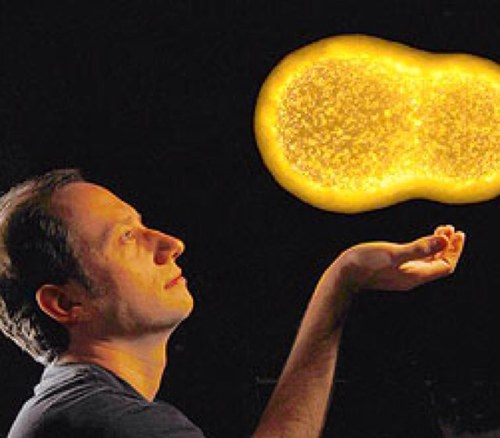
Despite the dramatic moment, it is possible to perform good science in Brazil, says Doctor Stevens Rehen
The neuroscientist defends research results should be disclosed quickly and to all scientific community
04/10/2016
Dr. Rehen believes the researcher must diversify their sources for fundraising, whether from Brazil or the USA
Doctor Stevens Rehen, besides being one of Brazils most renowned neuroscientists, is a professional who believes it is possible to perform top-of-the-line research in the Country – even in face of the Brazilian tough situation, both for economy and for politics.
Dr. Rehen, professor at the Biomedical Sciences Institute at the Federal University of Rio de Janeiro (UFRJ), is one of the professionals developing studies about the effects of Zika virus on the developing brain. One of these works, conducted on mini-brains infected with the virus, showed the growth of organoids was 40% lower if compared to non-infected organs. The work is one of the Brazilian initiatives for a better understanding how the virus interferes in neuron growth. Consequently, this could lead to developing ways to intervene in this process.
For 10 years our team at the Biomedical Sciences Institute at UFRJ and more recently at DOr Research and Learning Institute (IDOR) have used cellular model based on stem-cells reprogrammed to study brain development and mental disorders. We use these models, including mini-brains, to describe their infections by Zika first-hand, crucially contributing to explain the mechanisms underlying Zika-caused microcephaly.
Scientists diverge
Despite believing it is possible to perform high-quality science in Brazil, some researchers disagree with Dr. Stevens Rehens position. This is the case of another great neuroscientist, Doctor Suzana Herculano-Houzel.
Interviewed by Folha de São Paulo newspaper, in May, doctor Suzana said the fact that many researchers in the Country are professionals in public and private institutions, with little incentives to increase their productivity and low risks upon little production, keeps those willing to stand out from reaching the spotlight. The lack of focus in research investments, as well as bureaucracy and extremely high costs, complete the disappointing picture, according to her.
During the same interview, however, doctor Suzana stresses Brazil has excellence islands, quoting Dr. Stevens Rehens work, funded by private initiative at the DOr Research and Learning Institute (IDOR).
I respect Suzana Herculano-Houzels position, to whom I have a deep fondness. We were colleagues during college and then we lectured together at the same institute. Suzanas opinion is individual, but her critics are relevant, collective and cannot be ignored. Having said this and despite such dramatic moment, it is indeed possible to perform good science in Brazil. The researchers challenge is to diversify fundraising sources, whether in Brazil or in the USA, said Dr. Rehen.
Disclosing scientific results
Doctor Stevens Rehen still defends the disclosure of research results are made as preprints, i.e., even before submitted to journals with peer review system.
This is because releasing results as preprints also allows fast sharing and other scientists to make real-time critics, something common in the physics field for many years.
The shared preprint should be read, criticized and commented by peers. The goal is to spread knowledge, with transparency, what does not interfere – or should not interfere – in traditional submission to scientific journals (peer-review), he says.…










